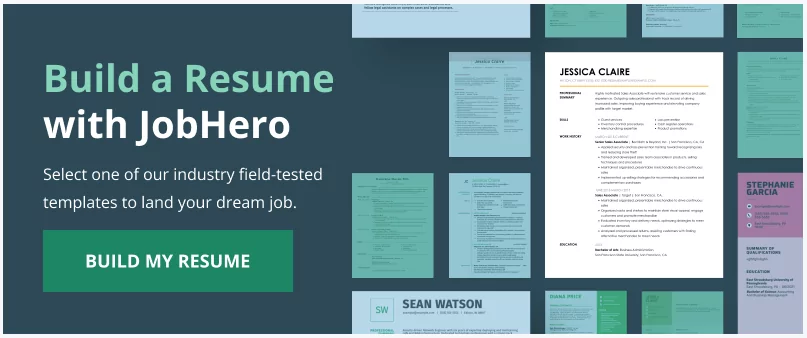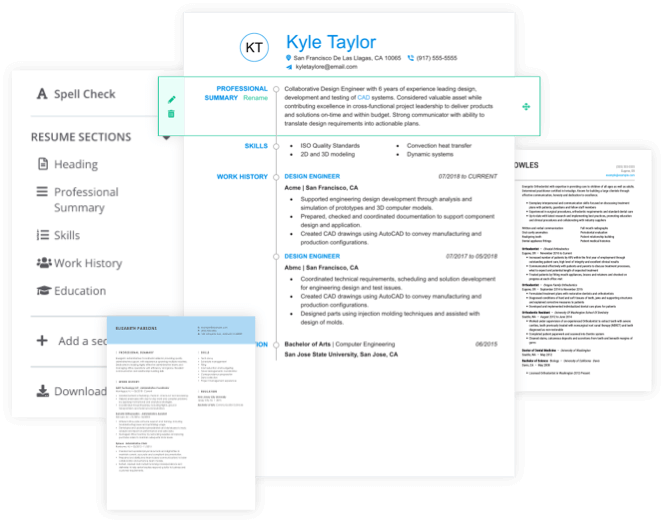![]()
Insurance clerks process insurance applications from customers and update existing customer policy records. This entry-level position requires strong attention to detail and the ability to communicate specifics to customers who may not understand certain insurance policies. Quick thinking and problem-solving skills also come in handy. Insurance clerks often work directly with insurance agents and report up the chain of a traditional corporate hierarchy. They usually work in office or call center settings.
Studying resume samples and examples are a great way to get inspiration for your own. Study our library of examples today!
Boost your resume with an extra click. Our cover letter templates match our resume templates’ designs for a cohesive application. Use a template in our builder to help you quantify and expand upon the experience from your resume and impress employers.


The specifics of an insurance clerk’s position can vary depending on the company they work for, but most clerks perform the same general duties:
The insurance clerk's main responsibility is processing policy applications for potential new policyholders. These applications come from a variety of different sources, including online applications and applications from agents. Insurance clerks enter data from the applications into the company's internal software.
Sometimes mistakes are made, and sometimes policyholders' life details change. Insurance clerks are responsible for updating existing policies as needed. These changes need to be affected promptly, as policyholders often have unexpected events take place in their lives.
Insurance clerks often fill the role of customer service representatives. When policyholders call in or send support requests, it often falls on the shoulders of the insurance clerk to answer those questions.
Most insurance companies work with a lot of documentation, and it's the responsibility of the insurance clerk to review those records. They also review policies to ensure accuracy before processing them.
Insurance clerks also communicate and work directly with insurance agents from all over the nation. As such, they must be able to problem-solve on the go, as insurance agents are often working with customers on one end of the phone while also coordinating with an insurance clerk.
Insurance clerks are efficient and professional in every aspect of their job. They should be able to catch errors on insurance applications and work well with customers to ensure high levels of accuracy. While most employers only require a high school diploma for education, they consistently seek candidates with the following skills:
Insurance clerks are most successful when they are comfortable with the following tools:
Commercial phone systems
Microsoft Office Suite
Insurance clerks typically don’t need more education than a high school diploma. Some employers prefer candidates with an associate’s degree or higher. Insurance clerks don’t need any kind of extra certification, but previous training in insurance billing always helps.
According to the Bureau of Labor Statistics (BLS), the median wage for insurance clerks is $38,430 per year. Those who are just breaking into the industry may find themselves in the bottom 10 percent with a salary of $26,510, while those with more experience can earn upwards of $59,310. Insurance clerks may or may not get comprehensive benefits packages, depending on whether they work full time or part time.
Growth projections for insurance clerks are mostly positive, due in part to the evolution of online technology that allows customers to submit applications from home. Insurance clerks with experience handling online applications can expect more success in this field.
Try our resume builder today

If you’re interested in pursuing a career as an insurance clerk, you might also be interested in checking out some of these helpful industry-specific resources:
This organization provides a community of insurance professionals that can help you network and learn more about the insurance industry as a whole. You can also find a variety of resources that can help you develop your skills as an insurance clerk.
Written by a former Walt Disney World vice president, this book focuses on the idea that customer service can make or break a company. Since insurance clerks work heavily in a customer service role, they can learn a lot from this book about maintaining customers, like how to solve problems on the fly. The principles outlined here can easily be applied to the world of insurance.
This is an incredibly helpful resource that provides a huge variety of realworld phrases you can use directly in your job as an insurance clerk. The phrases in this book can help you learn how to "convey courtesy, warmth, and assurance" to the policyholders that you work with.